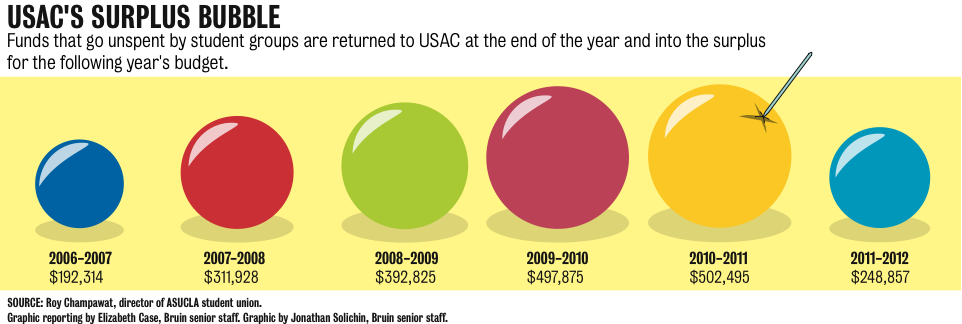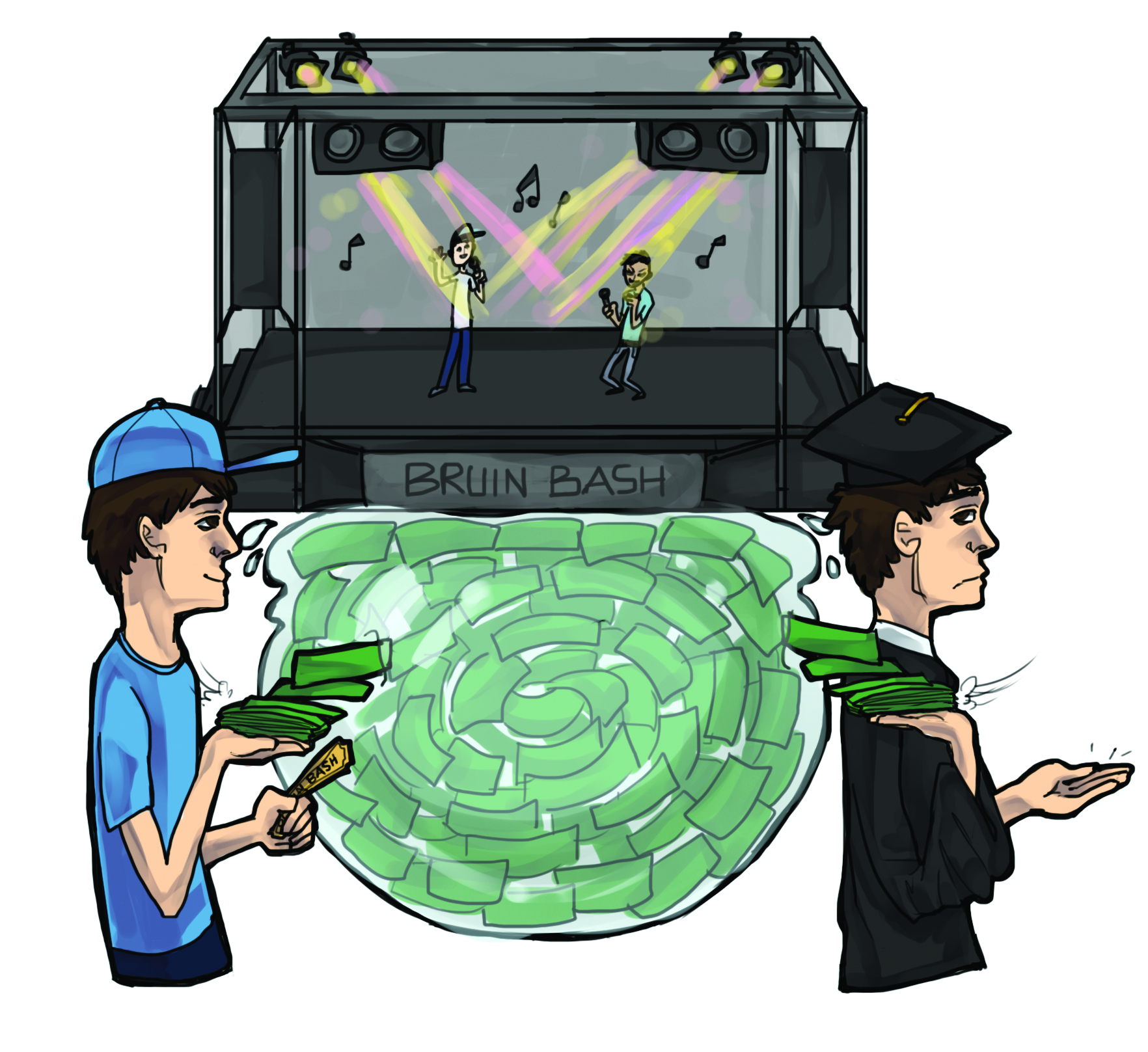
The Undergraduate Students Association Council recently approved $78,000 in surplus funds to be spent on Bruin Bash.
Of this money, one quarter will come from student fees paid by the class of 2012 ““ students who, needless to say, will be conspicuously absent at the concert.
And they say our alumni don’t give back.
This fiscal oddity arises out of the way USAC distributes funds to student groups. More precisely, it is a product of the fact that USAC can appropriate money, but can’t force groups to spend it.
The council makes dozens of allocations per week to student groups and USAC offices for everything from retreats to new costumes. When the money goes unspent, as some of it always does, it rolls over to the next fiscal year.
What doesn’t go toward big-ticket items like Bruin Bash and the textbook scholarship is dumped back into funds that are subsequently distributed to student groups and USAC offices ”“ and the cycle repeats itself.
By its very definition, the surplus is an accounting error ““ it is the aggregate difference between money that USAC shells out to student groups and the money those student groups actually use.
“The surplus ideally would not exist,” said Cynthia Jasso, USAC finance committee chair.
Jasso said that for USAC to run a surplus is similar to a nonprofit organization ending the year with profits.
It may seem strange to live in a world where a government surplus isn’t something to be desired. President Barack Obama certainly does not live in that world. If the federal government was running a chronic surplus, the president would be laughing his way to the ballot box.
Yet in USAC’s little corner of the world, a surplus rankles for two reasons. The first is the Bruin Bash conundrum ”“ students that graduated in the spring are shelling out for events and expenditures that don’t involve them.
The other disadvantage of running chronic surpluses has something to do with campus psychology.
Over the past half a decade, the surplus crept up from just shy of $200,000 in 2006 to just above $500,000 in 2010, according to Student Government Accounting.
Crucially important to realize is the fact that the campus runs just as smoothly on the smaller sum as the larger one.
What a half-a-million-dollar surplus means is that, for some reason or another, yesteryear’s student organizations were not spending the money that USAC allotted them.
When USAC offices in 2010 made the attempt to fix that problem through funding literacy ““ that is, helping groups access available student fee revenues ““ they managed to both put a pin to the surplus bubble and unintentionally created an air of panic.
USAC then voted to cut contingency fund allocations ““ an auxiliary source of student group funding ““ by 50 percent. Student groups scaled back the number of applications to the fund from an average of 30 to 40 a week to a mere 10 to 15, according to Jasso.
USAC President David Bocarsly said that both USAC and student groups “overcompensated” for the surplus decrease by asking for less money from the council and spending less themselves. After several years of running an inflated surplus, a comparatively paltry sum of $250,000 was ““ mistakenly ““ jarring.
The cost of Bruin Bash is only just over half of that paltry sum. The culprit behind the surplus gap was a bad dose of market psychology, not a so-called “shortfall.” Student groups and USAC offices must strive toward a better mutual understanding so that in the future, when the surplus readjusts, they don’t go and muck it up again.
Such an understanding will allow USAC to run a small, steady surplus that covers just the cost of Bruin Bash, which takes place too early in the year to be paid for through current student fees. The rest of the year’s events and programs could be funded through this year’s student fees alone.
A perceptive reader will note that the timing error wherein new graduates pay for new freshmen to see Major Lazer remains unsolved. However, as long as the surplus is fixed at a constant, every student pays the same amount toward Bruin Bash over his or her UCLA career.
Email Arom at darom@media.ucla.edu. Send general comments to opinion@media.ucla.edu or tweet us @DBOpinion.
